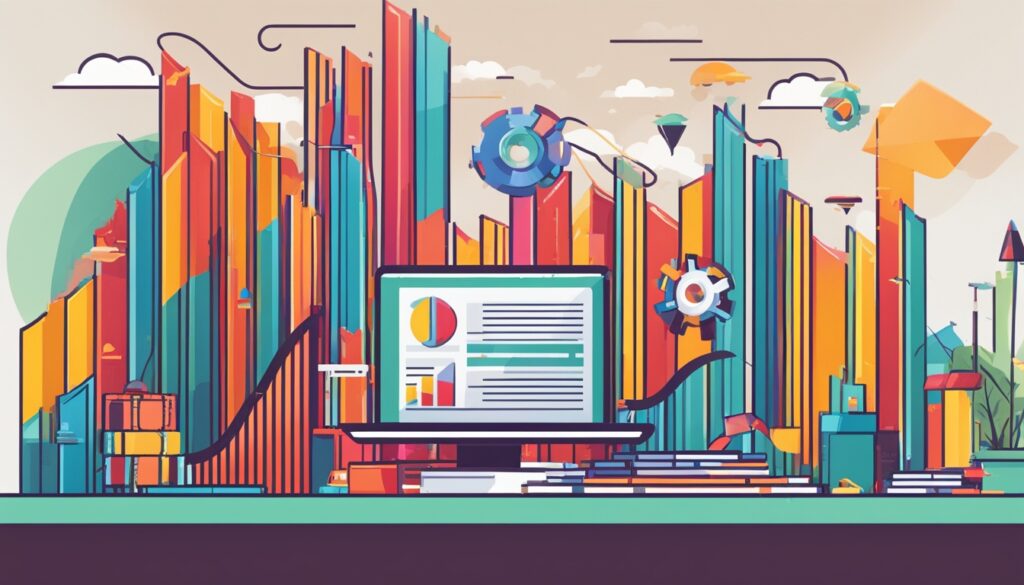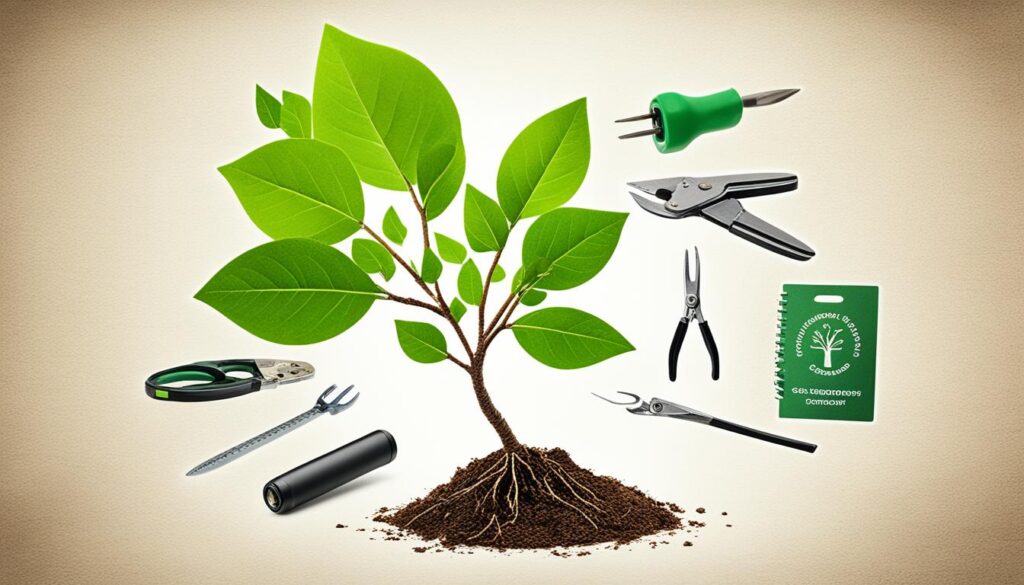Types Of Loans: Being a small business owner means you have to look at many loan options. This includes business lines of credit and equipment loans. While it can seem tough, picking the right kind of loan is key. It ensures you get the needed financing for growth.
Different loan types fit various small businesses. What you qualify for and how much money you need matters a lot. Things like interest rates and loan costs also change with each loan option.
Key Takeaways: Types Of Loans
- Small businesses have access to a wide range of loan types, including business lines of credit, equipment loans, and invoice factoring.
- The best type of loan for your small business will depend on factors like your qualifications, the amount of money you need, and the purpose of the loan.
- Loan terms, interest rates, and overall costs can vary significantly between different loan options.
- It’s important to carefully evaluate your financing needs and business circumstances to determine the type of loan that is the best fit.
- Seeking guidance from a financial advisor or lender can help you navigate the different loan types and make an informed decision.
Introduction
Financing your small business involves looking at different types of small business loans and different types of business loans. You can choose from options like lines of credit to SBA and microloans. Understanding these loan options and picking one that fits your business’s needs is key to success.
Also Read : Car Loan: What Are The Best Options For First Time Buyers?
Overview of Different Types of Small Business Loans
There are many types of small business loans, from traditional to specialized financing. Each option has its own features, eligibility rules, and benefits. Small business owners need to look closely at these when picking the right business loan.
Importance of Choosing the Right Loan for Your Business Needs
Choosing the right business loan is very important for your company. The loan you choose affects how much money you can get, the cost to finance, and your financial health. By knowing about loan types and choosing wisely, your business can have the means to succeed.
Also Read : Undergraduate Scholarship: How Do You Prepare For Scholarship?
Term Loans

A business term loan is common among small businesses. It gives a big amount of cash upfront. The borrower then pays it back with interest over an agreed time, usually making fixed payments each month. and come from banks, online options, and non-profits.
Definition and Purpose of Term Loans
Term loans offer big funds for specific business needs. This could be for buying equipment, expanding, or for day-to-day costs. They are paid back over a set time, which is usually one to five years, with extra money paid as interest on what’s left.
Also Read : How Can I Apply Scholarships For MCA?
Eligibility Criteria and Qualification Requirements
For a term loan, a business must show it has managed money well, has a good credit history, and a solid plan for how it will use the loan. Each lender has its own rules. Banks are tough and might need you to have been running for two years with a decent credit score. Online lenders could be easier to impress but might charge more interest.
Pros and Cons of Term Loans
The good things about term loans are getting a big amount of money, knowing your payments every month, and sometimes paying less in interest than with other loans. On the flip side, they can be hard to get, especially for new businesses, and you might need to offer something as security or a personal promise.
Also Read : Emergency Loans: How Can You Get Quick Financial Assistance?
SBA Loans
SBA loans are a special kind of financing for small businesses. They are backed in part by the Small Business Administration. Available through banks and other lenders, they help businesses get the funds they need. This money can be used for things like expanding the business, buying equipment, or investing in real estate.
What are SBA Loans?
These loans are designed to make it easier for small businesses to get money. The SBA guarantees part of the loan. This means less risk for lenders, so they can offer better terms. It’s a way for businesses that might not qualify for typical loans to get the funding they need.
Types of SBA Loans
Three main types of SBA loans are widely used. The SBA 7(a) loan is the top pick for many needs. It can help with general business issues, like working capital and equipment. The SBA 504 loan is just for buying or improving real estate. For smaller amounts under $50,000, there are SBA microloans. They’re perfect for startups or tiny companies.
Advantages and Disadvantages of SBA Loans
There are good things and not-so-good things about SBA loans. On the up side, you get low rates and can pay back over a long period. Plus, you might be able to qualify more easily. But, getting through the application can take time and lots of paperwork. You also usually need to put up a personal guarantee. When thinking about SBA loans, weigh these pros and cons carefully.
Also Read : Business Loans For Startups: What Are The Best Options Available?
Business Lines of Credit

A business line of credit is like a flexible fund source for your business. It works much the same way as a credit card does. With a line of credit, you borrow up to a set amount. You only pay interest on what you withdraw. Once you pay back what you borrowed, you can use the funds again.
How Business Lines of Credit Work
Banks, online lenders, and other lenders offer business lines of credit. Getting one is similar to getting a business term loan. Banks have strict requirements but offer lower rates. Online lenders are less strict but their rates might be higher. To qualify, your business should have good financials and a strong credit score.
Benefits of a Revolving Credit Facility
Business lines of credit are beneficial because they offer flexibility and lower costs. You only pay interest on what you use. This makes them a good choice if you don’t need a big amount of money at once. They are also often unsecured, so you don’t need to provide collateral.
Drawbacks and Costs of Business Lines of Credit
While useful, business lines of credit have their drawbacks. You need good credit and financials to qualify. And, they may have fees and variable interest rates. This means knowing how much you will pay ahead of time can be tricky.
Equipment Loans

Equipment loans help small businesses get the gear they need. Whether it’s for a restaurant or a construction site, these loans cover everything from delivery trucks to kitchen appliances. They’re a great way to fund your business’s growth.
Purpose of Equipment Loans
Equipment loans aim to assist companies in buying or leasing essential gear. This financing lets businesses like yours keep cash for other needs. It’s a smart choice for startups or those with few borrowing options.
Using Equipment as Collateral
With equipment loans, your gear is the loan’s security. Having collateral means it’s often easier to get this loan compared to others. Still, how much you can borrow and your interest rates depend on your credit and financial health.
Invoice Factoring and Financing
Small businesses often look into invoice factoring and financing for funding. These are two ways to handle money owed by customers. It’s important to know the difference to choose the best for your business.
Difference between invoice factoring and financing
Invoice factoring isn’t a loan but a quick way to get cash. You sell your unpaid invoices to a factoring company. They pay you a part upfront, collect from your customers, then give you the rest.
Invoice financing is a bit different. You still get money using your invoices as security, but you keep control of collecting from your customers.
Advantages of using unpaid invoices for financing
Both methods offer quick cash without a long application. This is great for businesses with slow payments or seasonal income changes. It lets you use your invoices to get funds fast.
Potential drawbacks and costs
However, these options can be more expensive than loans. The fees might cut into your profits. Also, you lose some control over customer dealings.
It is vital to read the agreement thoroughly. Be sure it helps meet your business goals and financial plans.
Types Of Loans

Small business owners can choose from various types of business loans. These include personal loans for business needs, business credit cards, and merchant cash advances. Each has its own benefits and downsides.
Personal loans for business purposes
For startups or businesses without credit history, a personal loan for business can work well. It depends on your personal credit history, personal finances, and personal assets. Personal loans might be cheaper in terms of rates and terms. Yet, the loan amount is usually lower than normal business term loans.
Business credit cards
Business credit cards let you have a flexible line of credit for business expenses. They might have higher interest rates than traditional loans. Getting a business credit card is easier than a bank loan. This is great for businesses just starting or with less-than-great credit.
Merchant cash advances
Merchant cash advances give you cash in exchange for part of your future sales revenue. They offer quick access to money, but come with high costs. Consider all the home equity line of credit fees before choosing this form of financing.
Microloans

Microloans are ideal for small businesses or startups. If you can’t get a usual bank loans work loan, they help out. Often, they’re around $50,000 given by non-profits, the SBA, or other sources. You use this money for working capital, buying inventory, or getting equipment.
What are microloans?
Microloans are part of microcredit. They’re there to give small businesses and startups a chance. Sometimes it’s hard to get a loan from a regular bank. These small get a personal loan loans support different business needs, like daily costs or growing.
Eligibility and target borrowers
Startups, new businesses, and those without strong credit often benefit from type of personal loan microloans. They’re for businesses that can’t get a normal small loan. If get a personal loan you meet the program’s criteria, you might get help. This way, you can find money even if big lenders say ‘no’.
Specialized Loans
As your business grows, you might need special financing. Traditional small business short-term loan pay off the loan loans are great for many. But for some, a different loan type is best.
Startup Loans
If your business is new and needs money fast, a startup Business loan is a good choice. Startup financing offers many options like SBA microloans and online loans. Each has its own interest rates, fees, and repayment terms. These specialized startup loans help new companies get started, even if they’re less than a year old.
Franchise Loans
Franchise loans support opening a franchise with credit union funds for the fee. They’re for different types of loans entrepreneurs using home improvement project an established brand and home improvement model. They auto loan offer good rates to federal student loans help you start your home improvement project repay the loan franchise business.
Commercial Real Estate Loans
For buying, renovating, or expanding property, commercial real estate loans are key. They provide funds to purchase loan funds the sites your business needs. These loans consider loan to pay the property’s value for eligibility and pay off the loan terms.
Also Read: Funding Your Future: Comprehensive Student Loan Options
FAQs
Q: What are the best types of loans for small businesses?
A: Small businesses can benefit from various types of loans depending on their needs. Some popular options include business term loans, SBA loans, business lines of credit, and equipment financing.
Q: How does a mortgage loan differ from a home equity loan?
A: A mortgage loan is used to purchase a home, while a home equity loan allows homeowners to borrow against the equity in their property.
Q: What is the difference between an unsecured loan and a secured loan?
A: An unsecured loan does not require collateral, whereas a secured loan is backed by an asset, such as a home or car.
Q: What are payday loans and how do they work?
A: Payday loans are short-term, high-interest loans typically used by borrowers who need quick cash before their next paycheck. They usually have to be repaid in full when the borrower receives their next paycheck.
Q: How do debt consolidation loans help individuals manage their finances?
A: Debt consolidation loans combine multiple debts into a single, more manageable loan with a lower interest rate, making it easier for individuals to pay off their outstanding debts.
Q: What are the different types of mortgages available to homebuyers?
A: Homebuyers can choose from various types of mortgages, including fixed-rate mortgages, adjustable-rate mortgages (ARMs), FHA loans, VA loans, and jumbo loans.
Q: How can a credit-builder loan help individuals with no credit history build credit?
A: A credit-builder loan is a small loan designed to help individuals establish or improve their credit scores. By making on-time payments, borrowers can demonstrate responsible credit use.
Q: What should borrowers consider when looking for the best loan for their needs?
A: Borrowers should consider factors such as interest rates, loan terms, fees, repayment options, and eligibility requirements when choosing the best loan for their specific financial situation.
